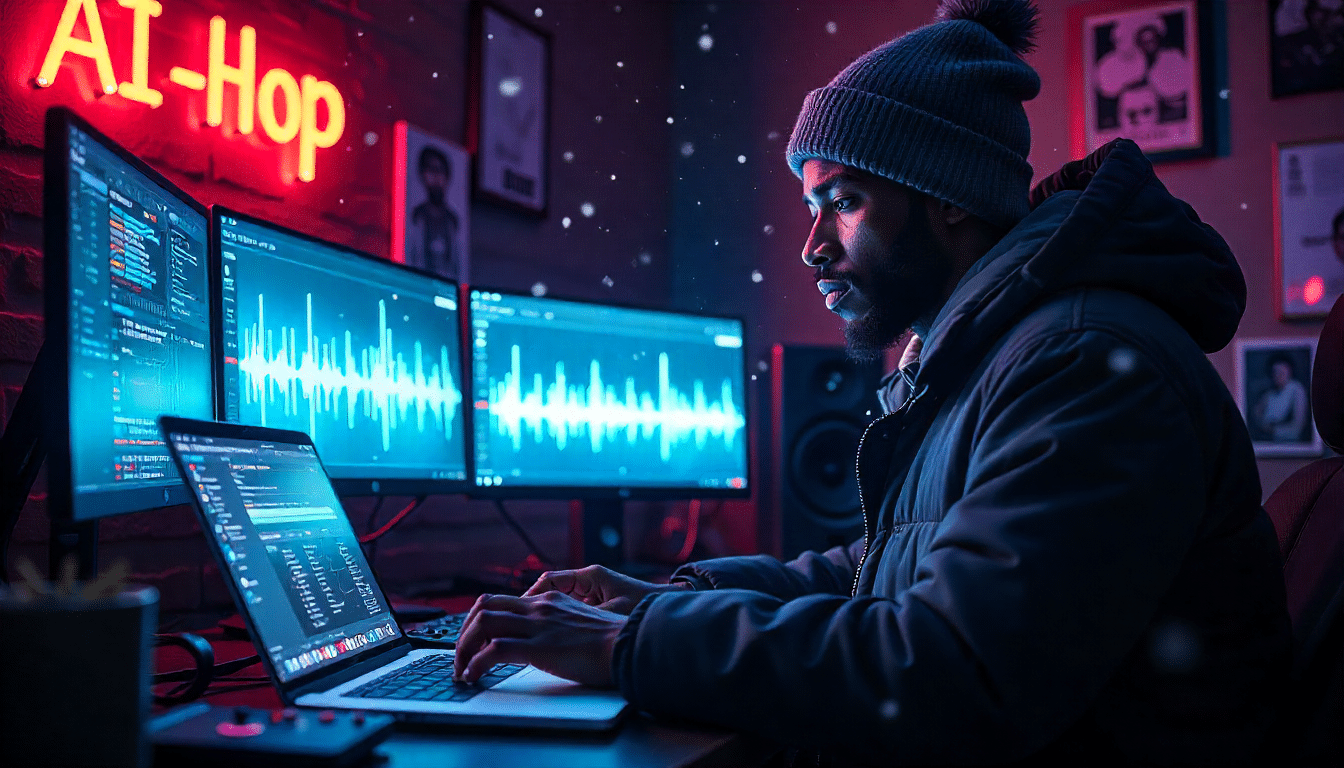By Alex Rivera, Music Rights & Production Editor at BeatstoRapOn
Alex advises independent rappers and producers on distribution, rights, and release strategy. Former label product manager; consulted indie artists on metadata, AI workflows, and rights clearances across 300+ releases.
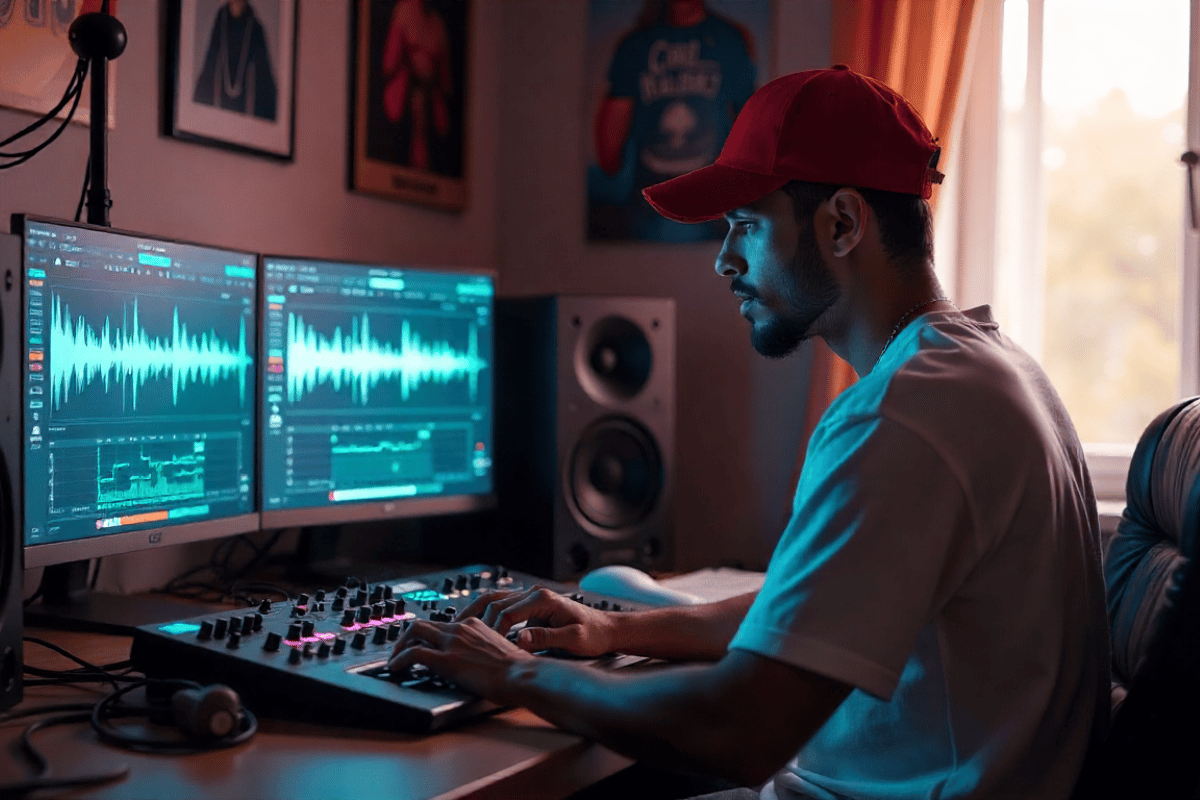
Short answer: Yes, you can often release AI-generated or AI-assisted rap in 2025—but only if you understand the rights your tool actually grants, how distributors and DSPs treat AI content, and where revenue can get diluted or clawed back. This field guide breaks down the rules in plain English and gives you a checklist to release with confidence.
The 2025 reality check: why this guide matters
The last 12 months reset the ground rules. Major labels filed suits against Suno and Udio over training on copyrighted music, while simultaneously exploring licensing deals that would normalize paid access to catalogs for AI training. (Sources: WSJ/TechCrunch, 2025.)
- Labels vs. AI: litigation and licensing talks can coexist; both shape what platforms allow. (WSJ/TechCrunch, June 2025.)
- Platforms are labeling and filtering: Deezer now tags albums that include fully AI-generated tracks and blocks fraudulent streams at scale. (Source: Deezer Newsroom, June 20, 2025.)
- 2025 stat: Global on-demand audio streams hit about 2.5 trillion in H1 2025; in the U.S., streaming accounts for ~92% of music consumption. (Source: Luminate Midyear 2025 via AP.)
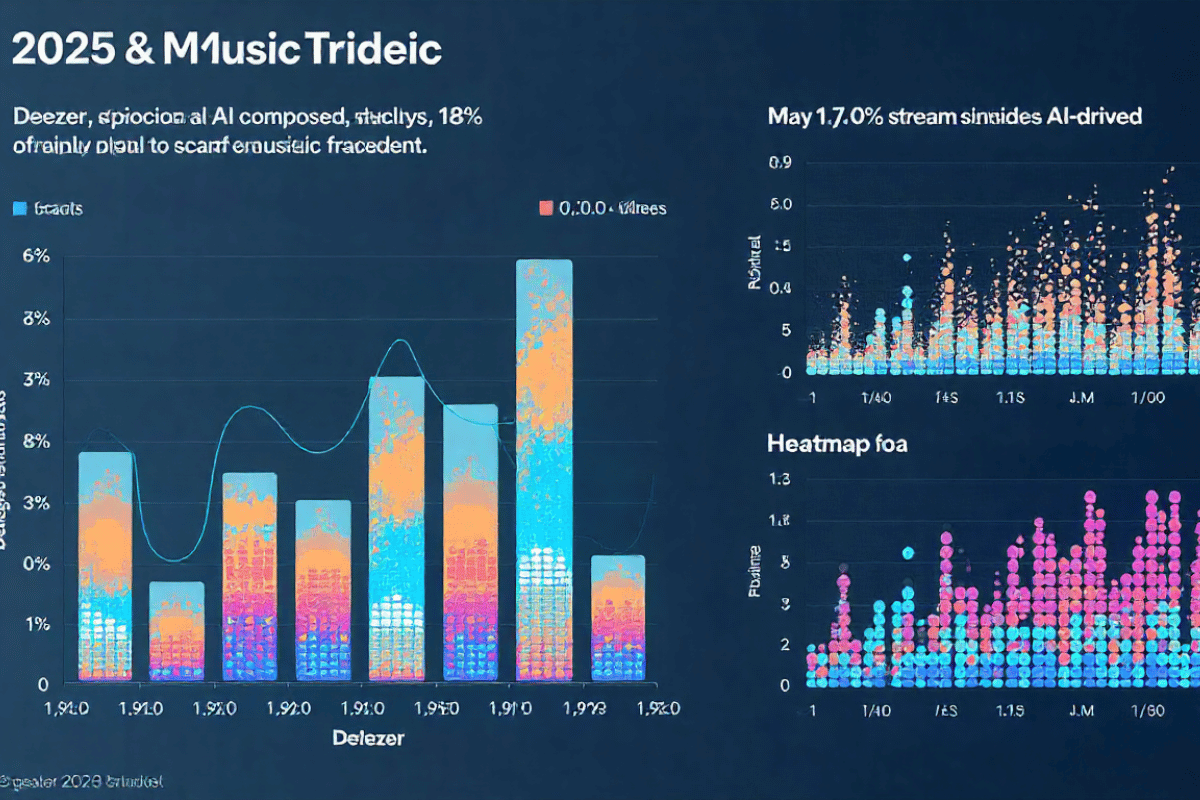
Quote (industry, 2025): “We’ve detected a significant uptick in delivery of AI generated music… we are committed to leading the way in increasing transparency.” —Alexis Lanternier, CEO, Deezer (Source: Deezer Newsroom, June 20, 2025)
Bottom line: you can release AI rap today, but there are tradeoffs: rights (your plan tier matters), labeling, algorithmic exposure, and the risk of claims and takedowns—especially if your lyrics, melodies, or artist likenesses invoke protected material.
What Suno & Udio actually grant you (and what they don’t)
Suno: commercial rights depend on your plan
Per Suno’s Help Center: if you make songs on the Basic (free) plan, Suno is the owner and you can’t use them commercially. Subscribers on Pro/Premier own their outputs and are granted a commercial use license. However, Suno notes the material “may not be eligible for copyright protection.” (Source: Suno Help)
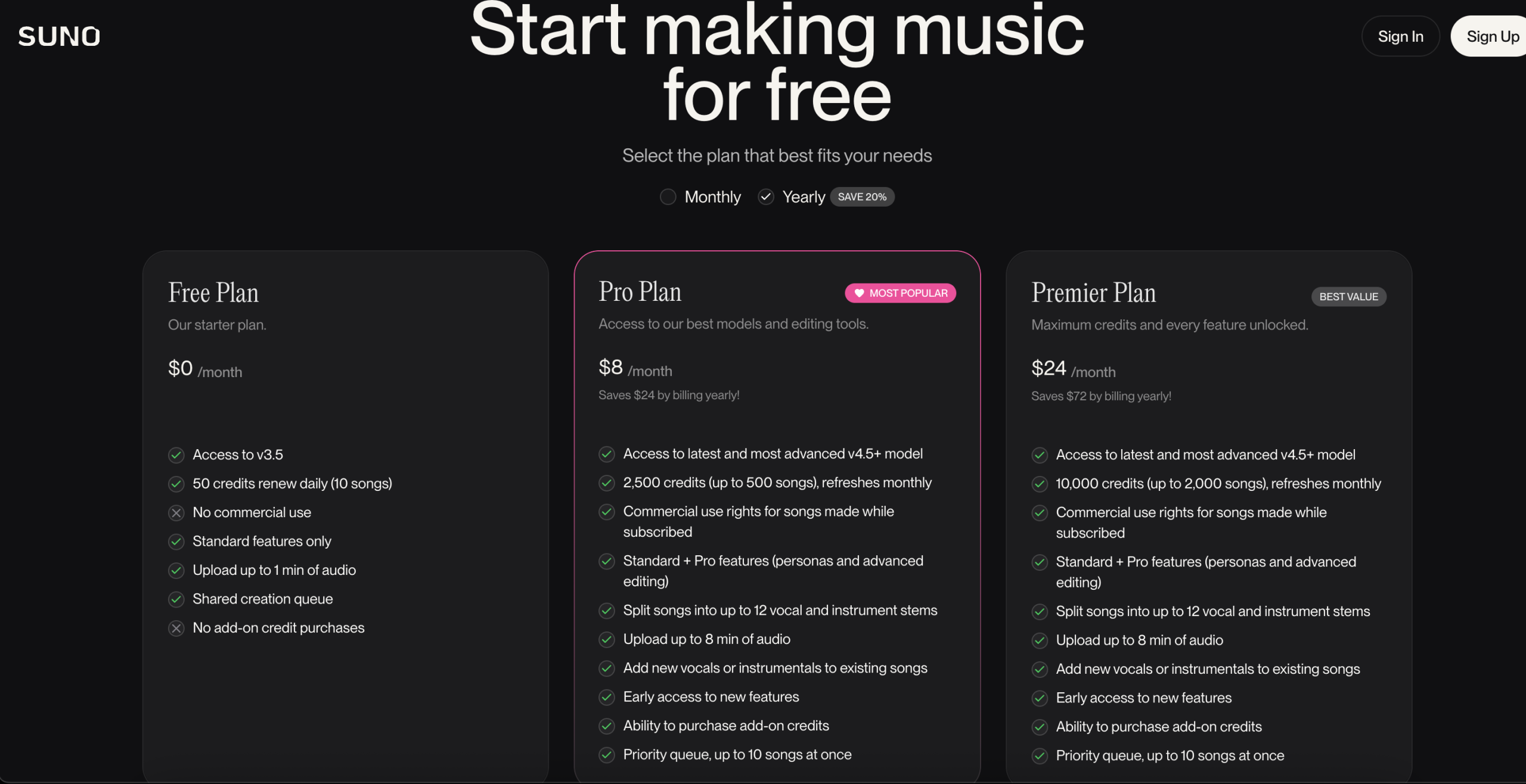
Udio: “most anything you want,” with attribution rules on free
Udio’s Help Center states you own the outputs. If you created the track on a free account, you must attribute (e.g., “Created with Udio”). Paid subscribers don’t need attribution. Udio also says: do not use copyrighted lyrics or other copyrighted material without permission. (Sources: Udio Help: Usage & Copyright)
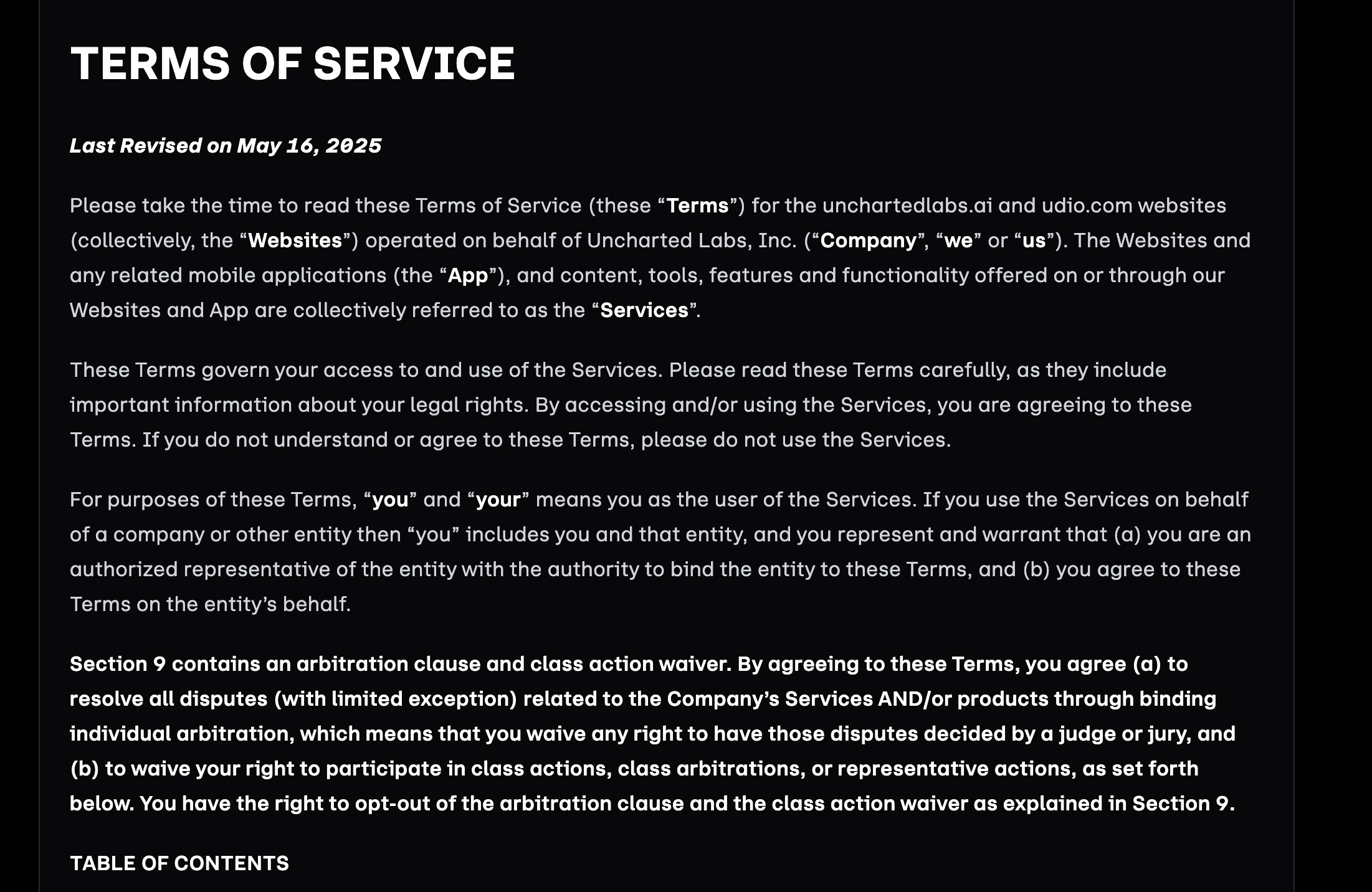
Pro tip: Keep a simple provenance log—date/time, account, plan, prompts, and stems—for each song. This lowers friction if a distributor or platform asks for proof.
Distributors & DSPs: who takes AI rap (and under what terms)?
TuneCore (Believe) has publicly said it will not distribute works that are 100% AI-generated, while supporting AI tools that assist human creation. Some programs (like past GrimesAI pilots) include specific crediting/rev-split rules. DistroKid documents how “artificial streaming” can trigger takedowns and penalties. (Sources: TuneCore/Believe statements; DistroKid Help)
Reality check: many AI tracks still get through—until they don’t. Enforcement is rising, and DSPs are coordinating more closely with distributors to identify artificial streaming and deceptive metadata. That’s another reason to keep clean titles, artist names, and credits.
Streaming & social: monetization, labeling, and takedowns
YouTube Shorts revenue with music (official math)
YouTube allocates Shorts ad revenue to a Creator Pool and splits views that contain music between the Creator Pool and music partners, depending on the number of tracks used. Example: 1 track → about half of the revenue from those views goes to music licensing before creator allocation. (Source: YouTube Help, 2025)
Labeling & fraud
Deezer tags albums with AI-generated tracks and excludes detected fraud from royalty payouts. Its 2025 data suggests up to 70% of streams on fully AI-generated uploads are fraudulent—even though those uploads represent a small slice of total streams. (Source: Deezer Newsroom, 2025)
Impersonation & voice clones
Don’t imitate living artists’ distinctive voices or lyrics. Beyond platform rules, right of publicity and copyright issues can surface fast. If your concept relies on a recognizable voice, you need express authorization.
The legal weather in 2025: training, licensing & the lawsuits
Major labels sued Suno and Udio in 2024 over training on copyrighted recordings. In 2025, reports indicated licensing talks as a parallel track. Expect fingerprinting/attribution tech, opt-outs, and settlement structures to shape the next wave of AI music tools. (WSJ/TechCrunch)
Quote (industry, 2025): “We should stand firm against… exceptions… that would allow AI companies to copy American content for free.” —Mitch Glazier, Chairman & CEO, RIAA (Source: RIAA, 2025)
Not legal advice. For your release, what matters is provenance (prove your rights), originality (avoid protected lyrics/melodies), and honesty (no impersonation).
Field guide: how to release AI rap without stepping on landmines
Pre-release checklist (do this before distribution)
- Prove rights: Paid plan receipts/screenshots (Suno Pro/Premier or Udio paid). Save Help Center language at time of creation.
- Originality: No copyrighted lyrics/melodies you don’t own. Keep references stylistic, not literal.
- Provenance log: Track prompts, stems, dates, account IDs. Export stems for archive.
- Mastering & loudness: Meet platform targets so QC flags don’t hold up delivery. See Spotify loudness 2025 and our AI mastering guide.
- Metadata hygiene: Real artist names, clear roles, safe titles; no “feat. [Famous Artist]” without authorization.
Distribution tactics that reduce flags
- Transparency: If you used Udio free, attribute in metadata per their Help Center (e.g., “Created with Udio”).
- Avoid fraud triggers: Don’t buy botted playlists or loops. Read your distributor’s anti-fraud policy; appeals are slow and outcomes uncertain.
- Backups: Keep instrumental and a cappella versions ready for edits and sync opportunities.
Social/Shorts strategy
Make two versions for promo:
- Beat-only (owned by you): maximizes Shorts revenue share because there’s no third-party music in the mix.
- Full track (if cleared): expect a split of revenue to music partners before your allocation.
Then optimize discoverability: see AI Reel Maker guide and TikTok SEO for Rappers.
Two mini case stories
Case A: Clean release
Mara is a Brooklyn rapper with a gritty, diaristic style. She writes all her lyrics, builds an 8-bar hook idea in Suno Pro, then exports stems and arranges in her DAW. She logs prompts, files the Suno receipt, and masters to platform-friendly loudness (around −14 LUFS integrated) using the techniques in our AI mastering guide. Metadata is clean; release clears in days. She posts beat-only Shorts first, then the full track after release.
Case B: Claim & recovery
Andre builds a chorus in Udio, but slips in a recognizable lyric from a 2000s hit. The track gets flagged. He revises the line, provides his Udio paid account proof, and re-uploads with corrected credits. He also updates his provenance log and keeps both an instrumental and a cappella handy for alternate cuts. Lesson: don’t quote copyrighted lyrics; document everything; move quickly on fixes.
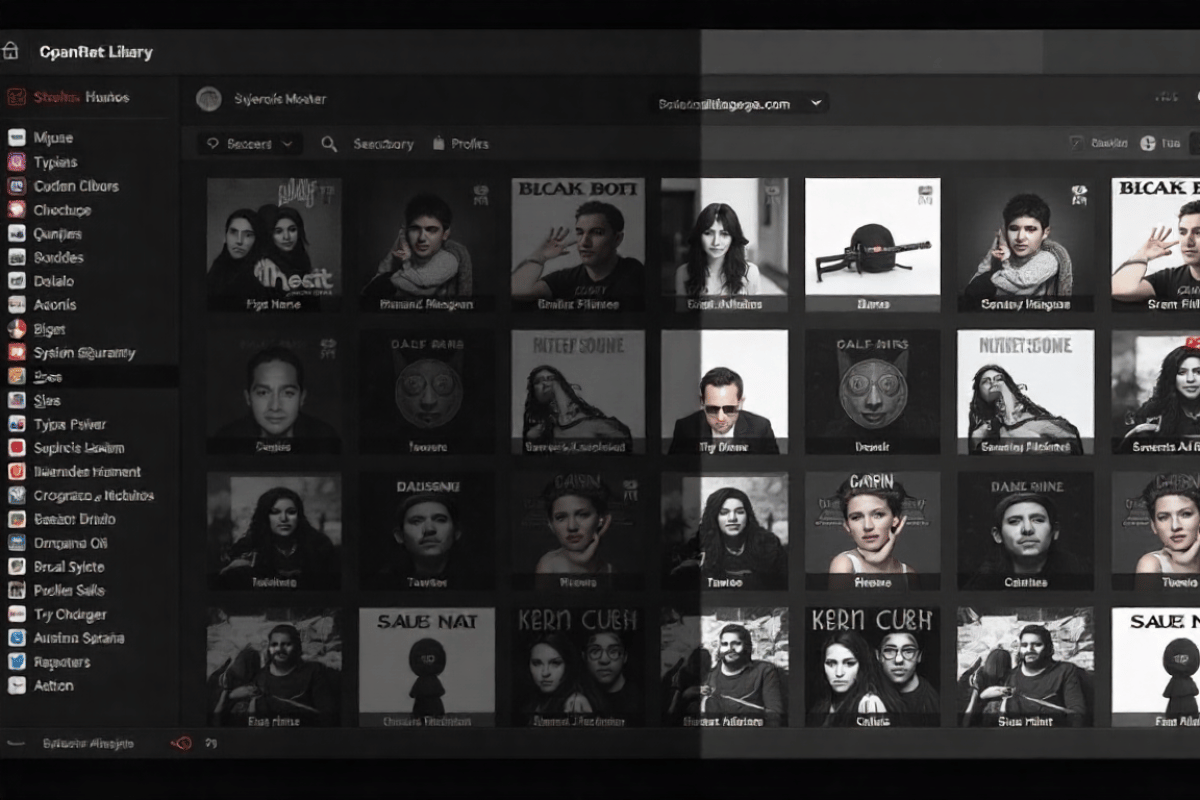
Quotes you can use
Industry (2025): “We should stand firm against other countries passing exceptions… that would allow AI companies to copy American content for free.” —Mitch Glazier, Chairman & CEO, RIAA (Source: RIAA, 2025)
Platform (2025): “AI is not inherently good or bad, but we believe a responsible and transparent approach is key to building trust.” —Alexis Lanternier, CEO, Deezer (Source: Deezer Newsroom, June 20, 2025)
Ready to release? Make it streaming-ready.
Master and package your AI-assisted single the right way—loudness, metadata, and delivery. Start here:
FAQ
Can I copyright an AI-generated track?
It depends on the jurisdiction and the amount of human authorship. Some tools note your AI output may not be eligible for copyright. Mix in human creativity (lyrics, arrangement, performance) and document it. (Sources: Suno Help; Udio Help)
Do I have to say my track was made with Udio?
Only if you created it on the free tier. Paid subscribers don’t need to attribute. (Source: Udio Help)
Will a DSP remove my AI song?
They can, if it’s deceptive, infringes rights, or trips fraud detection. Read your distributor’s anti-fraud policy. (Source: DistroKid Help)
How does music in Shorts affect my revenue?
Music reduces the share that reaches the Creator Pool, because YouTube allocates a portion to music partners first. (Source: YouTube Help)
Further reading on BeatstoRapOn
- The Definitive Guide to AI Mastering in 2025
- Ultimate Guide to the Spotify Music Algorithm
- The Ultimate Guide to Music Sampling in Hip-Hop
- How to Use Our AI Audio Stem Splitter & Vocal Remover
- The 9 Best Free/Freemium AI Stem Splitters & Vocal Removers
- The Complete Guide to Releasing Your First Rap Song in 2025
Sourcing appendix (accessed Aug 9, 2025, AEST)
- Deezer Newsroom: Deezer launches world’s first AI tagging system for music streaming (June 20, 2025). https://newsroom-deezer.com/2025/06/deezer-launches-worlds-first-ai-tagging-system-for-music-streaming/
- Luminate: 2025 Midyear Music Report + AP recap (July 2025). https://luminatedata.com/reports/midyear-music-industry-report-2025 and https://apnews.com/article/4ae716d9a7a8a4b7a003bec3955f5664
- RIAA (Mitch Glazier quote, 2025 filing context). https://www.riaa.com/icymi-riaa-leads-music-community-in-ai-filing-us-creative-leadership-paves-the-way-for-innovation/
- RIAA press hub (Suno/Udio litigation overview, 2024). https://www.riaa.com/record-companies-bring-landmark-cases-for-responsible-ai-againstsuno-and-udio-in-boston-and-new-york-federal-courts-respectively/
- WSJ: Major labels in talks to license AI training to Suno/Udio (June 2025). https://www.wsj.com/business/media/ai-music-licensing-universal-warner-sony-92bcbc0d
- TechCrunch: Labels reportedly negotiating licensing with Udio/Suno (June 2, 2025). https://techcrunch.com/2025/06/02/major-record-labels-are-reportedly-in-licensing-talks-with-ai-firms-udio-and-suno/
- YouTube Help: YouTube Shorts monetization policies (2025). https://support.google.com/youtube/answer/12504220
- Suno Help: Do I have the copyrights to songs I made? https://help.suno.com/en/articles/2746945
- Udio Help: Answers to common usage questions; Answers to common copyright-related questions. https://help.udio.com/en/articles/10739216 and https://help.udio.com/en/articles/10739250
- DistroKid Help: Artificial streaming and related enforcement notes. https://support.distrokid.com/hc/en-us/articles/360013647373
This article is general information, not legal advice. Consult a qualified attorney for your situation.
